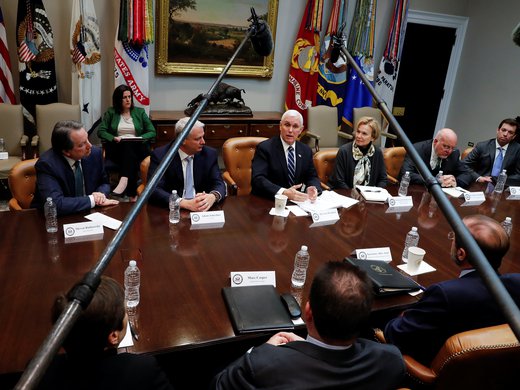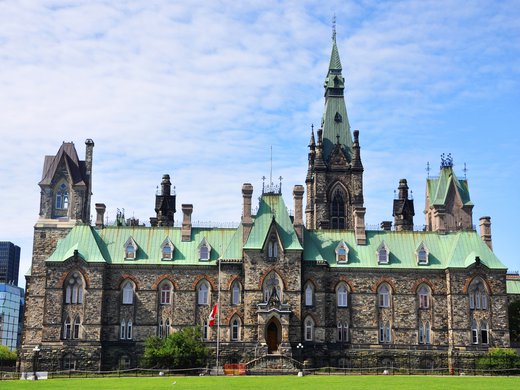As countries shut borders to people to limit the spread of COVID-19, it is important to keep in mind one of the key lessons from the last crisis: that we all depend on each other to get out of a crisis. Cooperatively, we will achieve a much better outcome than trying to go it alone. Further, each crisis brings its own lessons, and in this one, even as measures are taken to isolate individuals for the greater good, we are in fact becoming more interconnected in many new (if not always well-understood) ways, raising a host of governance challenges that we’ll need to deal with: privacy, surveillance, cyber threats and fake news come to mind.
Understandably, it’s hard to focus on such issues or even to see daylight at the end of the tunnel, given the uncertainties of the transmission of the virus, the tragic loss of life, the shutdown of the engines of everyday economic activity and its impact on incomes.
Fortunately, to deal with some of these issues, bold policy actions have been implemented: central bank swap lines, expansive monetary and fiscal policies, liquidity and credit measures, and incomes support. But, in a situation of deficient demand, more will be required.
Policy makers need to commit to keep these policies in place until a recovery is firmly established. The recovery is likely to be fragile, weighed down by uncertainty about whether the pandemic will resurface. Prematurely pulling back could aggravate an already bad situation and allow the damaging impacts to become permanent.
Moreover, policy makers must tackle barriers to trade head on. Conversely and disturbingly, even as bold actions are being taken to boost demand, and more are being contemplated, they are happening in the context of rising trade barriers that depress demand, as documented very well in the Global Trade Alert’s recent report Tackling COVID-19 Together. Not only have these barriers risen over the past decade, they continue to rise into this pandemic — for example, with countries placing limits placed on trading in health-related equipment.
The Group of Twenty (G20) must exercise greater leadership and push against rising trade barriers, going beyond words and taking concrete action. Case in point: in light of shortages of key medical equipment, firms have shown remarkable flexibility in adapting production lines and must be encouraged in these efforts by ensuring that they will be able to get their products to markets where they are needed.
As the pandemic envelopes the globe, one important consideration is that regions are being affected at different points in time. In fact, there are hopeful signs that the worst has passed in China. It is likely that China will become the main source of global demand over the near term, while other regions begin or continue their battle with COVID-19.
It is critical to ensure that goods and services can flow freely to ensure that the rotation in global demand benefits everyone. This is an essential part of the global safety net. Global barriers to trade need to be lowered.
Moreover, the asynchronous recovery from the virus also implies that different countries can free up resources to assist hard-hit regions — technical and otherwise — especially in those areas with less capacity to deal with immense challenges.
Against this backdrop of traditional trade, another form of trade has risen. E-commerce is turning out to be a safety net for many people, allowing them to receive — through the valiant actions of many in the supply chain — essential goods and services. This crisis will bring important lessons that will need to be considered as negotiations related to e-commerce begin at the World Trade Organization. Were there barriers that impeded the flow? To what extent has a digital divide risen or been reinforced? Could the digital infrastructure even handle the increased demands placed upon it?
Even as governments cope with the immense challenges related to COVID-19, a number of other thorny governance challenges are rising. As governments experiment with new measures to cope with the spread of the virus, and seek to both gather and relay new information, there is the need to balance personal privacy with the greater good while limiting activities by state or private actors that detract from the common good — such as fake news, cyber attacks and massive surveillance.
One area that will urgently need to be addressed related to intellectual property rules and data governance is the sharing of data for health and science purposes. The spirit of cooperation being shown in the race to find a vaccine is exemplary, but it is also limited by rules that can limit the dissemination of critical information and, as a result, the development of a vaccine. This area will require some enlightened thinking when a vaccine is found, to balance privacy and cyber security with the greater common good.
As we deal with and emerge from isolation, the spirit of international cooperation that we have seen in some areas must be reinforced and enhanced. A strong global economic recovery from the outbreak of COVID-19 depends on it.





